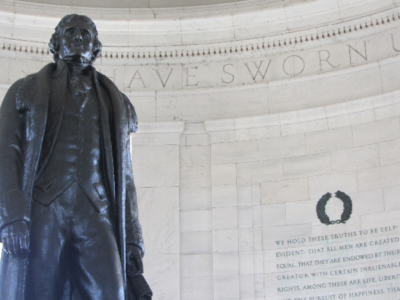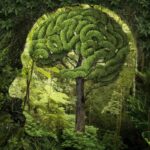Last week we were in Philadelphia and went to the new Museum of the American Revolution. It struck me how important the pursuit of happiness is to the success of our nation. So important, that the United States Declaration of Independence drafted by Thomas Jefferson, and on exhibit at the National Archives reads: “We hold these truths to be self-evident, that all men are created equal, that they are endowed by their Creator with certain unalienable Rights, that among these are Life, Liberty and the pursuit of Happiness. …”
Today our consumer-based society wants us to believe that if only I had a bigger house, a better car, and more money, and then I would be happy.
However, Greek philosophers encouraged us to live a meaningful life. They suggested, among other things, that we strive to build our character, virtues, not only to benefit ourselves, but also to benefit all of society. Aristotle, for instance, believed that the greatest virtues are those that are most useful to others. “Living the good life,” means that we are acting well, and living for society, not just for ourselves.
Perhaps the founders involved in drafting the Declaration of Independence had the pursuit of meaning, which is the primary intrinsic motivation, in mind when they wrote the words, “Life, Liberty and the pursuit of Happiness.”
More than likely, they weren’t referring to what we now refer to as hedonistic happiness, which is a fleeting emotion and moving target, dictated by things, events, or other people all external to ourselves.
It makes sense then, as seen in the just released 2019 World Happiness Report (WHR), that larger, wealthier countries, such as the United States, continue to slide down on the list. According to the Global Happiness and Well-Being Policy Report, “our social relationships are a key driver to happiness and well-being. It states that when policies are created to focus on the positive and quality of social connections, such as creating more green spaces for people to congregate, equal opportunities for all and more trust with less corruption, countries may see their frowns turn upside down.”
The WHR data suggests, “that engaging in more prosocial behavior, such as generosity, gratitude, stoking your sense of awe and general kindness are keys to happiness. Not only will your own well-being benefit and strengthen ties in your community, you’ll create a ripple that may turn into a wave of well-being.”
In the pursuit of happiness, consider investing time and effort in developing character, talents and virtues that are most helpful to others and you just might catch it.
(Aspiring to be a) Joy Spreader





